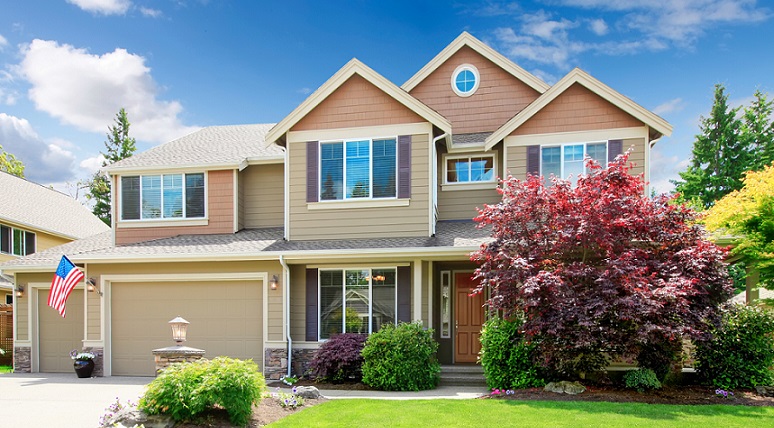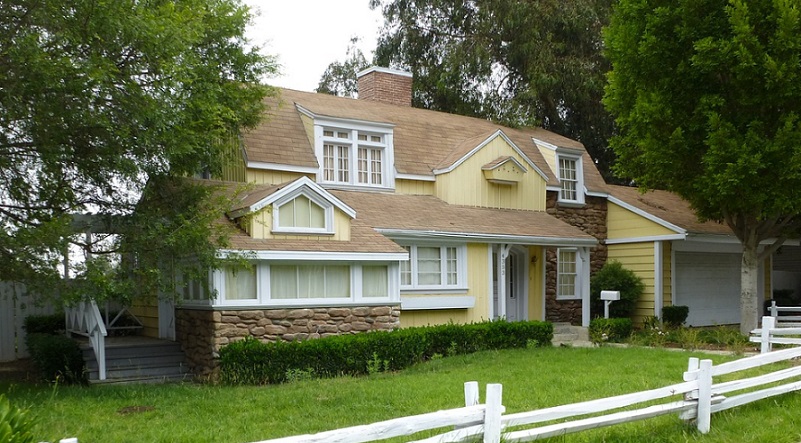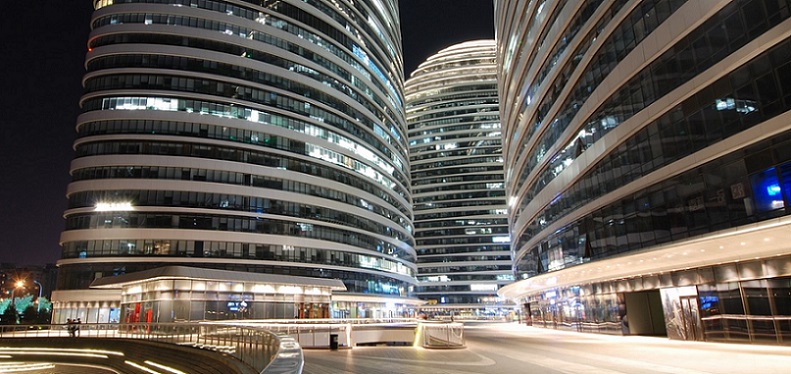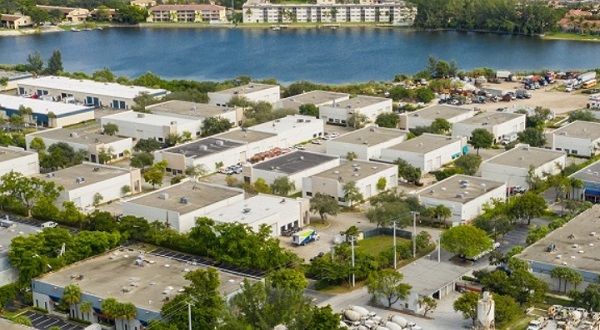When I speak to my clients who are from Singapore, most were surprised that someone from Asia and living outside the USA can buy a property there.
There is no restriction whatsoever. Yes, that is correct. This is not the case for real estate industry in other countries.
You don’t have to be an American citizen to own a home in the United States. The housing market in the United States is extraordinarily friendly and convenient to any foreigner who wishes to invest in properties throughout the country.
In fact, for Singaporeans and Malaysians, owning a home in the U.S. cost only a fraction of the price they would need to invest back home.
Now that I have your undivided interest, let me explain more.
The American government doesn’t maintain restrictions or charge hidden fees, such as extra stamp duties, to a non-citizen seeking out a home or a smart property investment in the country.
Although the experience of buying a property in the U.S. may differ, there are only four rules any foreign investor need to keep in mind as they begin their search for a property in the United States.
What Are The Types Of Property Investment In The USA?
Whether they are newly constructed or a resale house, there are several types of real estate in the United States.
The most common Residential real estate category is single-family homes. Other types include
- condominiums
- co-ops
- townhouses
- duplexes
- triple-deckers
- quadplexes
- high-value homes
- multi-generational and
- vacation homes
With so many variants of properties and real estate available, it is not just finding a property that appeal to your personality and resource.
If you want to invest in properties with the intention to flip real estate, it’s a different ball game.
You will want to better understand some of the peculiarities or challenges you will face. One of the ways to do so is by dividing the real estate into several categories.
Residential Property Investment
Residential real estate investments are properties include single dwelling units, houses, apartment buildings, townhouses, and vacation houses where a person or family pays you to live in the property for pre agreed time frame.
One of the reasons for favoring residential property is the low perceived risk. A smaller property can be easily rented out.
The length of their stay is based upon the rental agreement or as we call it in Singapore, the tenancy agreement they sign with you. It is also known as the lease agreement.
In the United States, most residential leases are on a twelve-month basis. Alternatively, if you are able to manage your properties you can even become an AirBnB host and rent out unused short-term single rooms to entire houses to earn extra income.
Commercial Property Investment
Commercial real estate investments are shops, office buildings, malls, skyscrapers and even land. There is a common perception that Commercial Property Investment is meant only for the “big boys” or big investors.
One of the most common queries I get from common investors is whether they should opt for a Commercial Property or Residential for investment purpose.
I think it’s easier to acquire or buy a ready commercial building with individual offices to lease out to companies and small business owners.
This you can do quickly without the time spent on a new construction which may take a few years.
Commercial property rentals normally involve multi-year leases. This may lead to greater stability in cash flow, and protect the owner when rental rates decline.
In the event, the market heats up and rental rates increase substantially, you may not be able to raise the rental as you are locked in old agreements.
If you want to earn rental income that will lead to greater flexibility in cash flow, then you may re-think this business model.
Commercial Property Investment Vs Residential Property Investment
For comparison, you may want to read how commercial properties compare against residential properties.
Let’s just discuss the low perceived risk of residential property when measured against the perceived high risk for Commercial Property Investment.
Some perception might be true but it is not always true now with emerging trends.
In prime or premium locations, developers are not willing to sell even if you’re willing to buy. Developers are now leasing commercial properties instead of selling the units.
They prefer to put in on a long-term lease for up to say 10 years and give out a very high rental yield of up to 10%.
Once the loan tenure is up, the property is paid up and it is free to the developer. The assured returns help the developer to survive the long and sometimes delayed construction period and bad times.
I was also tempted to buy a commercial property. The high rental yields quoted by the experts can be as high as 15%.
You might think to yourself, “Am I missing out on something here?” If this is true, then all your family, friends, business associate and even grandmother will rush to purchase a commercial property.
Right?
Let’s break this down.
Pros Of Commercial Property Investment
- Rental Yields
With average rental yield starting at two digits i.e. 10% and prime location yielding up to 13% to 15%, you will need to know the actual value of the property and if you are paying the right price. (link to Iskandar)
- Consistent & Regular Returns
Lease agreements for commercial property are generally for the long term. The minimum tenure is 5 years but when you lease for a developer, it is at 10 years at least. This means the developer or owner is assured of assured of consistent returns.
The lease agreement carries a clause of annual increase irrespective of market conditions, unlike residential property. So in a sense returns from commercial property investment are assured in nature.

- Tenants
With a good prime location, a quality like retail chains, business houses, banks, and corporates attracts more such tenants in the vicinity. This is the ripple effect that helps in better future rental yields.
- Zero Furnishing Cost
Most tenants will renovate and refurbish to their brand or corporate image. This means you can handover the raw unit to the tenant. If I lease the property to a bank, the will renovate the premise in accordance to its guidelines to set up the bank branch or an ATM.
Unlike residential property, you will need to add some basic home furnishing, for example, kitchen cabinets, electrical appliances which add to the cost of the property.
Cons Of Commercial Property Investment
Are there disadvantages to investing in commercial property?
One important thing to keep in mind is the cost. Aside from high underlying costs, commercial property is vulnerable to periodic bubbles and busts. In a week market, businesses may fold and tenants move out.
The prized commercial property can be difficult to sell when values are falling.
- Costly
Compared to a residential property, as a rule of thumb, commercial property investment is a costly affair. In many cities, the price per sq.ft. may contrast sharply. Presently a commercial property investment may be quite affordable due to a slowdown in the real estate sector.
- Buying Process
Buying a commercial property requires more thorough research compared to residential property. The location of the property and the nature of business are important criteria.
As the future growth potential of the area decides your future returns, the demand and supply of such properties play a crucial role.
Any misjudgment can mean your costlier investment may be locked in for a longer period of time. You may not be able to resell at current market value if the entire building has no tenancy or if the prime business area has shifted.

- Beyond GDP
The true fortune of commercial property investment is linked to the performance of the GDP of the country, i.e. the economy.
A weakening economy has a more severe impact on the demand for commercial space. Even though businesses may scale down, people still need a place to stay.
So in this regard, no matter what the economy is, there will still be tenants for residential properties in comparison.
- Loan at Higher Interest Rate
In comparison to residential properties, getting a loan to purchase a commercial property is highly dependent on the risk assessment by the bank.
This means the interest rate is not fixed and is normally 1.5% to 5% more than the home loan interest rate.
- Loan to Value Ratio
The average Loan to Value Ratio (LTV) for a commercial property is 60% as compared to 80% for a residential property.
This translates to you having to pool more money from your pocket.
- No Tax Incentive
Unlike a home loan, you will not get any tax benefit for the purchase of commercial property on loan.
One of the critical reasons why most investors prefer residential property is there is no tax benefit to reduce the overall cost of borrowing.
- Low Capital Appreciation
One thing I tell my investors to be cautious about is while the high rental yields may be very attractive and convincing. The capital appreciation is actually very low.
This is model is highly suitable if you already have your own business or are planning to set up own commercial establishment.
Then it makes profitable sense to own the property instead of leasing it. If you decide to relocate to another prime business area, you can lease this ownership property out. Otherwise, you can use it as a store for your goods.
- Maintenance
The general upkeep and the maintenance of a commercial complex directly impact your commercial property investment.
It the place is unkempt, dirty, with rubbish spilling out and public toilets were broken, the image of the property is tarnished.
I personally prefer to visit or shop in a clean environment. I’m sure your customers would prefer to find your business in the well-maintained area as well.
- Not Easy to find a Tenant
The smaller the size of your commercial property, the easier it is to find a tenant. Shops or small office spaces can be easily leased to smaller businesses.
Let’s say if you have a 20,000 sq.ft. Office space or shop, you may find difficulty to lease that out.
- Not Easy to Sell
When you consider this carefully, you will realize that there aren’t that many buyers for a commercial property. Otherwise, all your family, friends, business associate and even grandmother will rush to purchase a commercial property.
In other words, it is not easy to sell and may take a longer time to sell.
Commercial Property Investment vs Residential Property Investment
Your first investment should be a residential property which provides shelter, financial and emotional security to you and your family. Your second property can be a commercial property bought for investment purpose.
By doing this, you will have the best of both worlds as the rental yields are very high for commercial property investment.
Personally, I will avoid commercial property under construction as the risk is higher. Sometimes when projects stall or there are delays in completion and the issuance of Occupation of Fitness, buyers still have to continue to service their loans.
My other takeaway is not to buy a commercial property that is part of a residential complex. This may appear to be very lucrative as there appears to be a “ready market” for businesses. In reality, this may not be the case.
You will need to consider the high maintenance cost on the amenities and upkeep of the complex.
For retail businesses, the availability of parking can have a major impact on your commercial property investment. If you buy a shop without parking space you can’t expect many walk-ins.
The same applies if there is no or very limited access for loading and unloading. It may be costly to manually carry your goods for a distance to your shop.
My final word is this; residential property investment is less risky in comparison to commercial property.
Retail Property Investment
Retail real estate investments consist of retail storefronts, shopping malls, and strip malls. In some cases, the landlord also receives a percentage of sales generated by the tenant store in addition to a base rent to incentivise the landlord to keep the property in top-notch condition.
However, if you bought the right retail property, way back in 2003, then you hit the jackpot. A decade later, you can retire in the early ’40s. This is because according to EdgeProp Singapore in January 2013, a new-sale transaction for a 161 sq. ft. unit at Alexandra Central sold for $2.87 million, or $17,820 psf.
In hindsight, many Singaporean would have made millions if they invested in any of the nine developments: Alexandra Central, Centrepoint, Far East Plaza, Lucky Plaza, Novena Regency, Pavilion Square, People’s Park Complex, Sim Lim Square and The Arcade.
Anyone of the strata retail transactions that have crossed the $10,000 psf mark, based on URA’s caveat data.
Industrial Property Investment
Industrial real estate investments can consist of everything from industrial warehouses leased to distribution centers or over long-term agreements for storage units’ facilities and even car washes!
Industrial real estate investments often have significant fee and service revenue streams. These are targeted to generate sales from customers use the facility on a temporarily basics.
It can be modeled after adding coin-operated vacuum cleaners at a car wash. Sometimes it’s a coin operated vending machine for filtered water.
Mixed-Use Property Investment
Mixed-use real estate investments combine any of the above categories into a single project. Mixed-use property investments are increasingly popular for those with significant assets.
One of the important and appealing methods is this model has a degree of built-in diversification, which is important for controlling risk.
An example of a mixed-use property could be a 5 stories building which is leased by a bank on the ground floor, with a popular fast food chain and a convenience store. Above that a quick service restaurant, an upscale retail shop, and beauty salon.
The units above are turned into service apartments or Airbnb and the top floor is leased to a membership gym.This would work well in a mid-sized town with ample parking and few big competitors.
Is There Any Way To Invest In Real Estate Without Dealing With The Property Myself?
Basically, I have had many investors ask me, “Can I invest in real estate without touching a property myself?”
Yes, there is. I can assure you, that we have investors who don’t want to travel all the way to the USA. They don’t want to get into the nitty-gritty buying and rehab then reselling the properties.
Real Estate Investment Trusts (REITs)
Real estate investment trusts, or REITs, are popular in the investment community. As an investor, you are buying shares of a corporation that owns real estate properties through a REIT. You receive an income as dividends.
All in all, REITs can be a good addition to the right investor’s portfolio if purchased at the right valuation and with a sufficient margin of safety. You can find a REIT to match your desired industry. For example, if you want to own hotels, you can invest in hotel REITs.
For tax purposes, dividends are allocated to ordinary income, capital gains, and return of capital. As REITs do not pay taxes at the corporate level, investors are taxed at their individual tax rate for the ordinary income portion of the dividend.
Tax Lien Certificates
What’s a property tax lien? When an individual fails to pay his or her property tax, the local government (the county) files a tax lien imposed by law upon the property to secure the payment of the property taxes.
In other words, a tax lien is the actual legal claim the county has against the property for the unpaid amount that is owed on it.
The county can auction off the lien to raises the revenues to be used to run the county. According to the law in the USA, this is the most cost-efficient way to generate income.
Foreign Investors buy the liens in an auction. The buyer of the tax lien and pay the amount of taxes owed. This “loan” to the property owners gives the buyer the right to collect back that money plus a guaranteed interest, from the property owner.
The interest rates differ from county to county and this makes the tax liens an attractive investment. This is the law in the USA. If the property owner does not pay up within a certain period of time, the lien-holder can foreclose on the property.
Purchasing tax lien certificates is one way to get real estate exposure in your portfolio without actually investing in property.
Technically, I would say that this is like a fixed income investment, just like a bond, because you generating your investment return by lending money in exchange for interest income.
You are essentially in a way financing a property, although you are actually hoping to invest in these tax liens, and make some money from the situation.
You have no underlying stake in the appreciation or profitability of property beyond that interest income and the return of your principal.
If you’re just starting to look at investment, you should first learn all about tax lien investing from a professional who has a solid track record before attempting to buy your first tax lien.
Like all investments, tax liens have risks. Tax Liens sometimes, as we say in Singapore, are not “clean.” They come with additional hassles. Some second liens from banks and other lenders might make collecting the money impossible if the home goes into foreclosure.
Regardless of the interest rate on the tax lien, the property may not be a good investment as it is situated in a bad neighborhood.
Sometimes, liens are put up for sale for a simple reason. Even the county has no practical way to collect from the homeowner.
Other times, banks and hedge funds may rush into the marketplace and outbid all other investors. When this happens the investment is no longer attractive.
Essentially, as a tax lien investor, you take over as a debtor for the government. If the property owner can’t or won’t pay, the home goes into foreclosure.
This may seem the easiest investment with the lowest risks. You have to be very knowledgeable about real estate before you invest in this arena.
For this, having boots on the ground, with real connections with banks and real estate agents help. They are the key people who will assist with the paperwork and application to foreclose the property and evict the property owner of the home.
Some investors just don’t feel comfortable with this kind of potential scenario.
Can Foreigners Buy Property Investment In The USA?
Yes, yes and yes. The US government has no restrictions on foreign investments in us real estate. So in a nutshell, you can buy multiple properties in the USA. Basically, the same rules apply for US citizens, US resident aliens and foreign nationals.
For all of us who live in Asia, we fall under the category of foreign nationals. Now that you know that buying property in the USA is not a problem for foreigners. I know the next questions you will be thinking of.
The answer is simple.
You do not; I repeat, do not need a Green Card, any particular type of Visa and definitely do not need US citizenship to be eligible to do so. You can buy a house in the USA. That’s legal.
However, before you can purchase your dream home in the United States, you need to secure an Individual Taxpayer Identification Number.
How Long Can I Stay In The USA If I Own A Property?
After you buy your property, you can only live in it for a few months per year subject to the duration of a visitor visa. Foreigners owning property in the USA is not uncommon. But owning a property does not make you became a USA citizen automatically.
Again, depending on which country you’re from you may be able to stay up to 90 days without a visa, but beyond that you will need a visa.
Typically, as a tourist, you aren’t able to stay more than 180 days at a time, and if you stay more than 182 days (total) over three consecutive years you may be subject to US income tax.
For Singaporeans, the normal stay on an Electronic System for Travel Authorization (ESTA) is 90 days. Before embarking on your next big adventure, make sure you have the appropriate travel documents if you want to stay longer.
If you enter the United States on a tourist visa or visa waiver, your maximum stay will be 90 days. With a B-2 tourist visa, by contrast, you will normally be allowed to stay for up to six months.
Please check with the USA Embassy for clarifications.
https://sg.usembassy.gov/visas/
Apply for ESTA no later than 72 hours before departing for the United States. Real-time approvals will no longer be available and arriving at the airport without a previously approved ESTA will likely result in being denied boarding. https://esta.cbp.dhs.gov/esta/






Property investments in Singapore are not easy after all those taxes & gov regulations. You have to pay a hefty amount to buy a simple house. Proper consultation is necessary before investing in a property.
This is so true and we agree. We do offer free consultation if you have further questions. By the way, do you know that Noble Sky Institute has a system where we buy properties BELOW market value and sell them at market rate?
Tedious analysis and research are put in place to ENSURE potential profits – even BEFORE we buy.
I am Mr Chukwujekwu Paul.
I am into estate management in Ivory Coast. I will like to partner with your company to invest in estate projects in my country.
Hi we specialize in USA Real Estate and don’t think we will be able to support you in Ivory Coast.